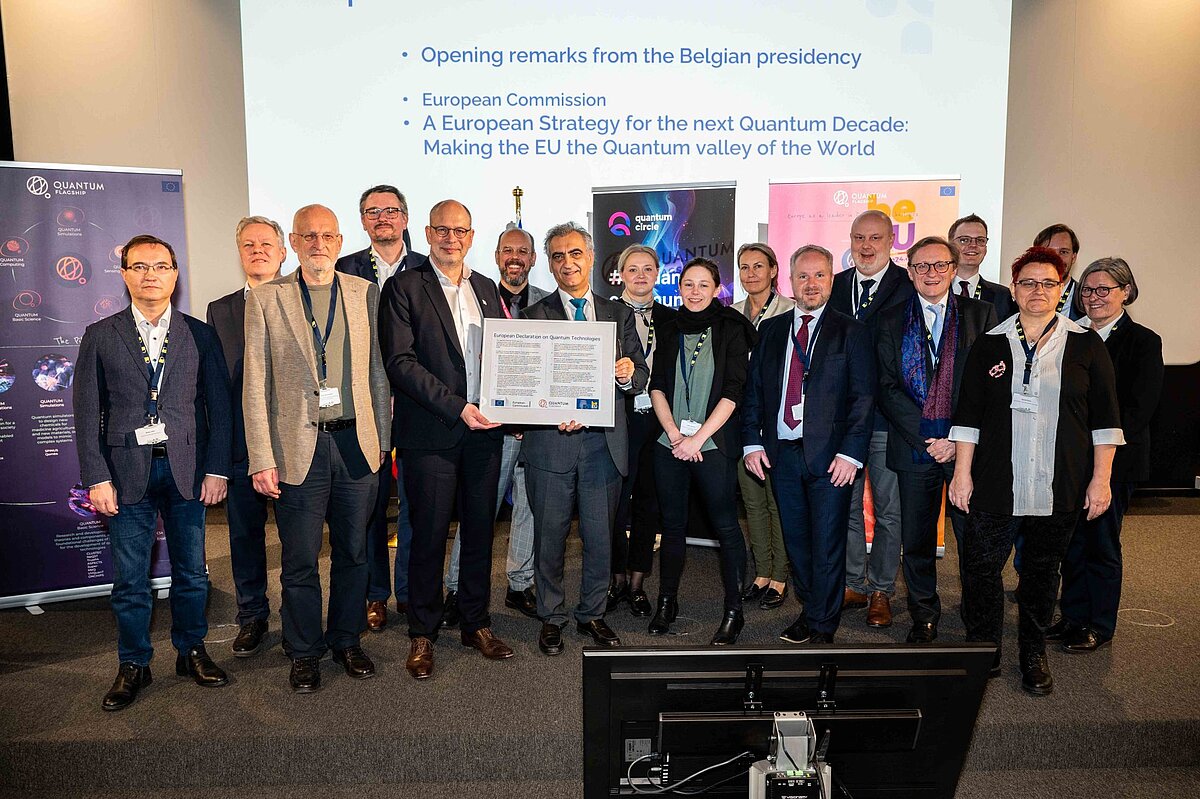
Andris Ambainis on behalf of the Minister for Education and Science of Latvia at the workshop “Implementation of Quantum Competence Clusters: Strengths and Weaknesses” at the Belgian Presidency event on Quantum Technologies where the European Declaration on Quantum Technologies was signed:
“The point that Latvia’s minister for Education and Science wanted me to make here is that the Quantum Flagship needs to think very seriously about the inclusion of widening countries. Widening countries indeed need to prepare beforehand and do their homework. Latvia is doing its homework. Our government has been supportive of quantum for years. We have been supportive of quantum in the meetings between the European governments before there was a Quantum Flagship. The government of Latvia has also strongly supported quantum in Latvia by establishing the Latvian Quantum Initiative and now the second period of the Latvian Quantum Initiative is in negotiations.
Latvia is a small widening country but we have enough people in the quantum field. We have established the Latvian Quantum Initiative and we are building our quantum ecosystem in Riga. We also have the Latvian-European QCI project and the memorandum of understanding between the two projects. We are meeting regularly to build our Latvian quantum community. We can put a lot of thought into how to develop quantum in Latvia - what are our strengths, what are the areas to develop, what should we do so that we are a contributor to European quantum effort and don't duplicate what is done elsewhere. This needs to be matched by an inclusiveness effort on a European level.”
The Declaration recognises the strategic importance of quantum technologies for the scientific and industrial competitiveness of the EU. To date, twenty-three EU Member States have signed the Declaration: Belgium, Bulgaria, Croatia, Cyprus, Czech Republic, Denmark, Estonia, Finland, France, Germany, Greece, Hungary, Italy, Latvia, Luxembourg, the Netherlands, Poland, Portugal, Romania, Spain, Slovakia, Slovenia, and Sweden.
By joining the Declaration, the Member States undertake to cooperate with each other and jointly with the European Commission to create and develop European research and development programs, to coordinate and develop the development of quantum technology products, the creation of start-ups and the involvement of the business industry, to promote the creation of a unified quantum communication infrastructure and application both on Earth and in space. Also, the member states undertake to jointly implement the attraction of investment, increase the necessary high skills and knowledge, as well as strengthen the economic security of the EU by developing quantum encryption technologies and continuously monitoring the opportunities and risks of cooperating with third countries and international organisations.